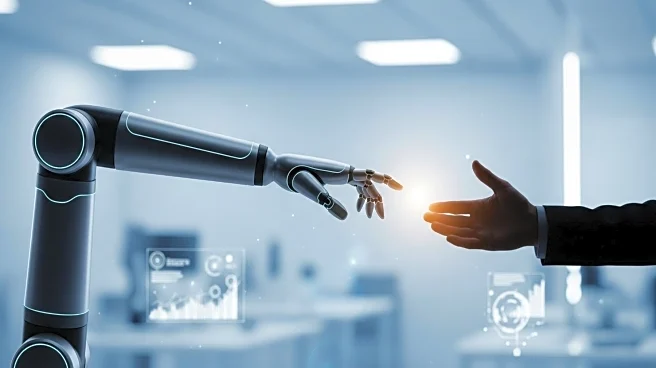What's Happening?
A recent poll by the Trade Union Congress (TUC) reveals that 50% of UK workers believe they should have a say in how AI is developed and used in workplaces. The survey, which included 2,605 UK adults, also found that 51% are concerned about AI's impact on jobs. Paul Mills, managing director of AI strategy consultancy Mai Technology, emphasizes the need for HR to lead early engagement with employees to address these concerns. HR should focus on evolving roles and continuous development paths to build trust and inclusion.
Why It's Important?
The integration of AI in workplaces is transforming job design and creating anxiety among workers about job security. The demand for worker input reflects a broader need for transparency and inclusivity in AI adoption. HR's role in facilitating this transition is crucial to ensuring employees feel informed and involved, which can mitigate fears and encourage acceptance of AI technologies. This shift is essential for maintaining workforce morale and productivity as AI becomes more prevalent.
What's Next?
HR departments are expected to implement strategies that involve employees in AI adoption processes, such as creating workshops and councils for collaboration. Continuous feedback collection and strategy adjustments based on employee experiences will be vital. These efforts aim to help workers navigate changes and view AI as an opportunity for career growth rather than a threat.










